Smoke filled the sky across the industrial parts of the UK, as coal powered the industrial revolution. First coal brought prosperity and progress, but over decades the smoke stacks have been identified as a major cause of the climate crisis.
Over the last 20 years the UK has changed dramatically, with the closure of Ratcliffe on Soar power station at the end of September 2024, marking the beginning of a coal free era. As recently as 2012, coal provided 40% of the UK’s electricity, with around 40 coal mines extracting 17.1 million tonnes of coal, with an additional 45 million tonnes of coal imported from Russia, Colombia and the USA.
Ratcliffe on Soar, near Nottingham opened in 1967, with a capacity of 2,000 megawatts, enough to power 2 million homes. Since the early 2000s people across the UK have campaigned against coal power stations, coal mines and other coal infrastructure. Coal is the greatest historical cause of climate change and still a major global contributor of green house gas emissions.
In 2015, the UK was the first country to announce it would phase-out coal by 2025. While lauded as a big climate victory the Government’s intention was also to ensure coal didn’t exit the UK’s grid any earlier than 2025. At the time coal still contributed 9% of the UK’s electricity supply.[1]
Ratcliffe power station has seen its fair share of protests demanding closure. One example of direct action took place on the site in 2007, when Spring into Action, saw 11 people locked on to the dumper trucks and the conveyor belts, feeding coal to the power station. This caused major disruption to the plant operation, before they were removed. Back then Ratcliffe was the UK’s 3rd largest source of carbon dioxide emissions in the UK.
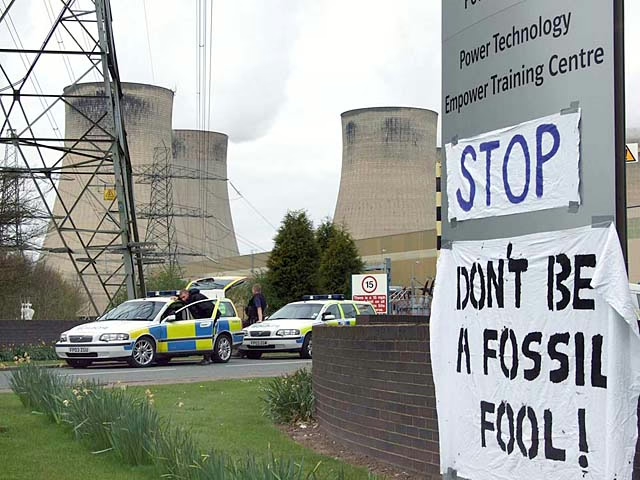
One of the group occupying the site said “the threat of climate change is so huge and the government so complacent that the people themselves are now acting in proportionate response to this and targeting the root causes of climate change.”
In a far cry from recent sentencing, in 2009, when 114 people were pre-emptively arrested from a meeting place in Nottingham, they were found to have been intending to occupy Ratcliffe for as long as possible. When activists were sentenced, one judge declared they acted with "the highest possible motives".i They accepted that they were intending to close the power station, but said that the urgency of climate change meant they had to take this action.
Undercover police officer Mark Kennedy, was involved in organising actions against Ratcliffe power station and as such some of the convictions were later overturned.
Three years ago, prior to the Glasgow COP climate summit, the phase-out date was brought forward to 2024. The UK wanted to be seen as a climate leader in phasing-out coal and setting up the Powering Past Coal Alliance with Canada in 2015, but others got there first.
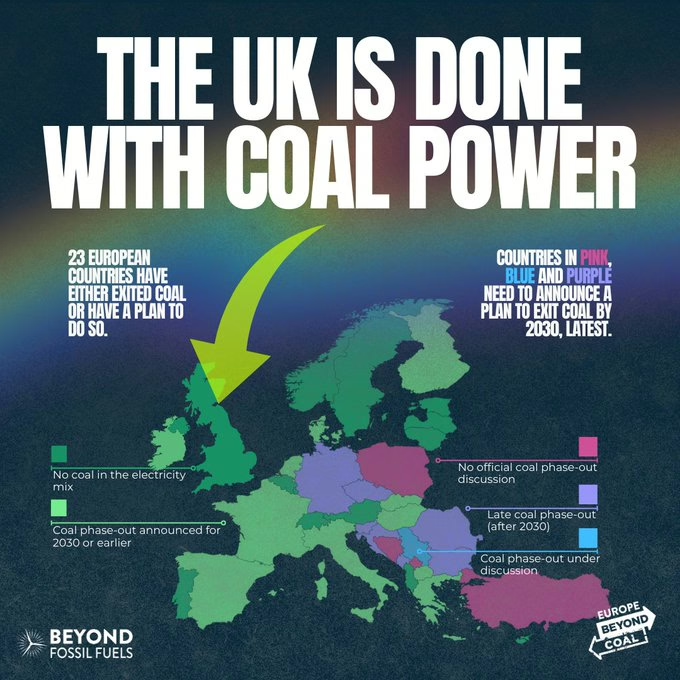
Although the UK was first to announce the end of its coal power sector, Belgium was the first European nation to stop burning coal, ending its use in 2016. Sweden stopped using coal in 2019, bringing forward the planned date by 2 years. Austria stopped using coal in 2020. Neither the Belgium nor Austrian phase-outs were considered to be government driven.i Portugal brought forward its phase-out date twice from a starting point of 2030 to 2021.
The UK Government extended the life of coal power stations after Russia invaded Ukraine. Drax, West Burton and part of Ratcliffe coal power stations were kept from retiring in 2022, in a fear that Russian warmongering would endanger electricity supply. The UK stopped Russian coal imports in response to the war.
In 2017, the UK had sourced 49% of its imported coal from Russia, where coal mining contributed to cultural genocide and laid waste to large areas of the country, decimating rivers, forests and agricultural areas.
Imported coal comes with a high toll for the local populations and campaigners in the UK have been pushing for an end to imports of coal from Russia as well as Colombia, while calling for the end of its mining and use in the UK. Over the years London Mining Network has brought visitors to the UK from international coal affected regions, particularly in Latin America. Meeting these campaigners has been profoundly moving experiences for people living close to proposed coal mines in the UK, as the similarities in their struggles are numerous, and it shows that the campaigns are thinking globally by acting locally and pushing for the end of coal power.
The movement against coal power in the UK has been wide, with people standing up and saying no to opencast coal mines near their homes and joining together to stop 45 planned new opencast coal mines from operating. Significant battles were fought at Lodge House in Derbyshire, in the Pont Valley in Durham and Ffos-y-fran the UK’s largest opencast mine, which was allowed by the Welsh Government to mine coal for an unbelievable 15 months after planning permission ended.
Coal Action Network has worked with communities resisting opencast and later deep coal mining across the UK. From its inception in 2008, it has supported more than 25 communities to stop coal mines and extension from destroying local wildlife, filling local people’s lungs with dust and the industrialisation of the countryside.
Site occupations have been a significant tactic in slowing or stopping coal mines from starting. Coal Action Scotland occupied several sites including Mainshill and later Glentaggart East, both in South Lanarkshire for action camps that disrupted operations on existing opencast sites. Scotland’s last coal power station, Longannet closed in March 2016, and the Scottish Government banned coal mining in 2022, in a protest against the proposed West Cumbria coal mine.
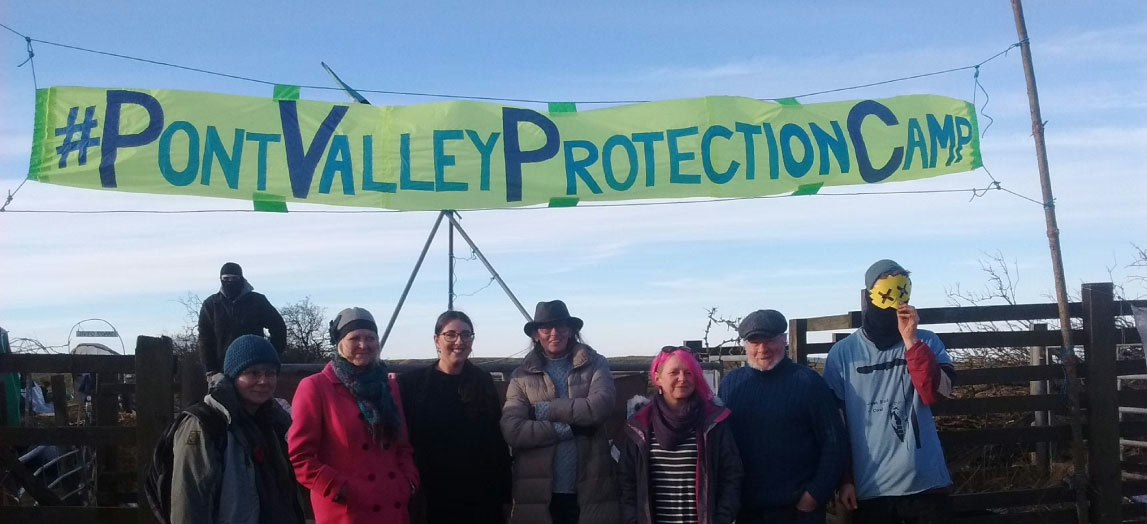
In 2018 the last two opencast coal mines started, both in County Durham, opposition to the one in the Pont Valley a protest camp was set up and featured in the urgent film documentary Finite: the climate of change. This campaign, and others in the North East had brought the local opposition to coal extraction to a head and in 2020 the proposed mines at Druridge Bay, and Dewley Hill were rejected, along with an extension to the Pont Valley opencast. Support for coal had turned a corner.
With the coal-phase out announcement and pressure on opencast coal mines coal companies started saying that their coal was destined for use in the steel industry. The second and third biggest single site emitters of carbon in the UK were Port Talbot steelworks and the steelworks at Scunthorpe. Drax power station has the dubious honour of being the biggest carbon emitter, which although it no longer burning coal, it does burning trees from old growth forests.
In September 2024 the planning permission for the proposed West Cumbria coal mine was revoked and then the license from the Coal Authority was rejected. Communities in Cumbria and beyond fought long and hard to bring about these results which were cemented in court by South Lakes Action on Climate Change and Friends of the Earth.
[1] Digest of UK energy Statistics 2017, page 14
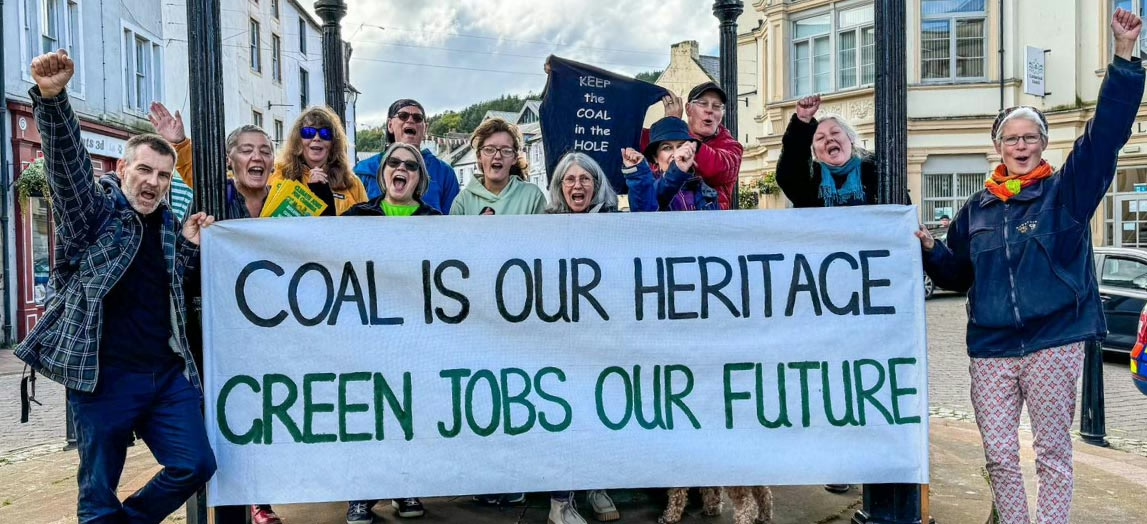
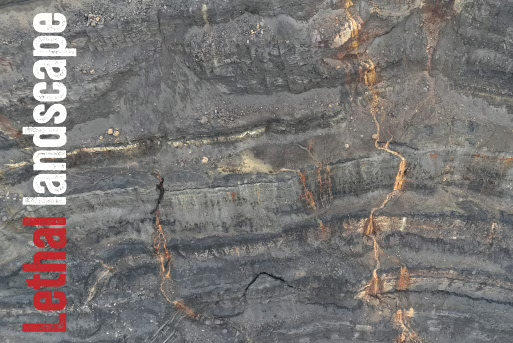
16 years of opencast coal mining in Ffos-y-fran has generated colossal overburden mounds, also known as slag heaps or coal tips. There are three coal tips, with the third being the largest, and cumulatively accounting for 37 million cubic metres of colliery spoil, rocks, and soil…
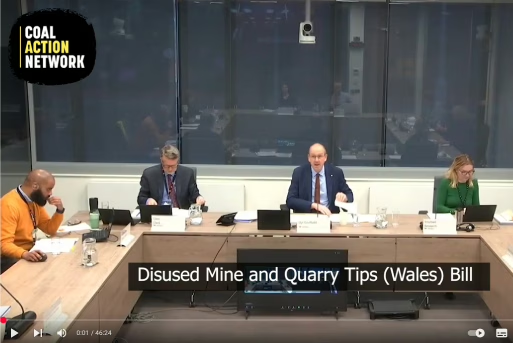
We were invited for the second time to give oral evidence to the Climate Change, Environment, and Infrastructure Committee of the Welsh Parliament (Senedd) on 05th February 2025. We shared the panel with Haf, Director of FOE Cymru, to provide our opinion on the weaknesses, strengths…
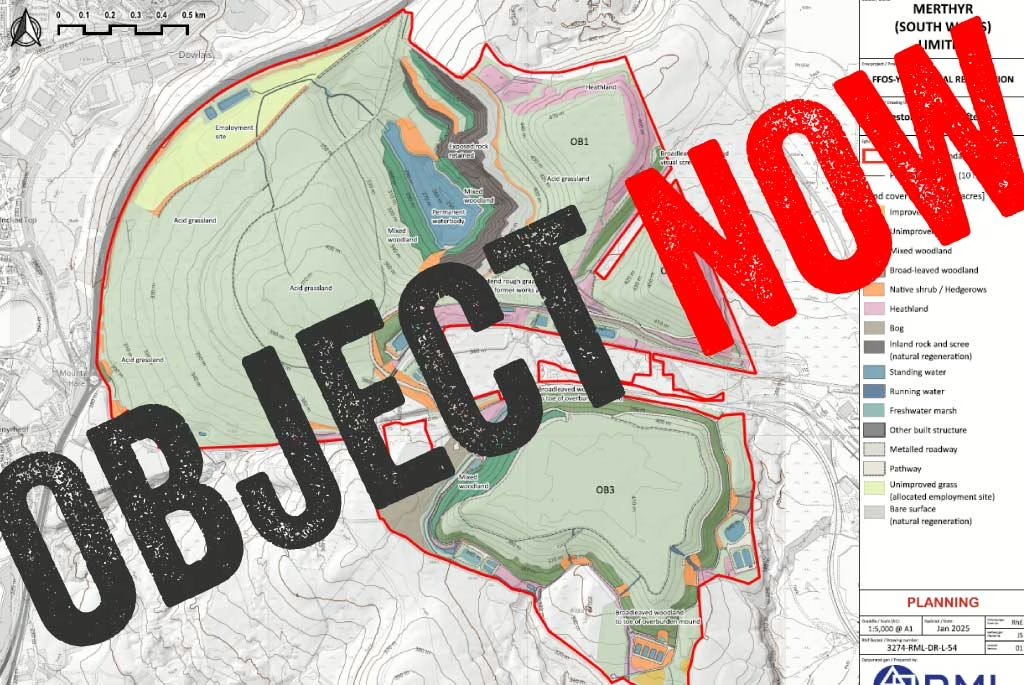
Merthyr (South Wales) Ltd mined for over a year illegally after planning permission for the Ffos-y-fran opencast coal mine ended in September 2022. During that year, it made record-breaking profits due to sanctions on Russia and other factors driving up the price of coal. But rather than using some of the profits from that ill-gotten coal…

MSW claims “It was established that there are insufficient funds available to achieve the 2015 restoration strategy and therefore an alternative scheme is required.” (EIA Scoping Report, July 2024)… To our knowledge, there has been no evidence submitted by MSW that it cannot fund the full restoration it is contracted to undertake…
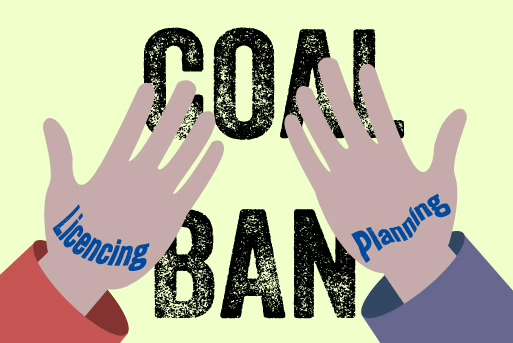
The UK Government launched a consultation on a limited review of the National Planning Policy Framework (NPPF) for 8 weeks from 30 July to 24 September 2024. The NPPF is an influential document that shapes planning decisions and priorities across England. It is periodically updated by the Government, following a public consultation…
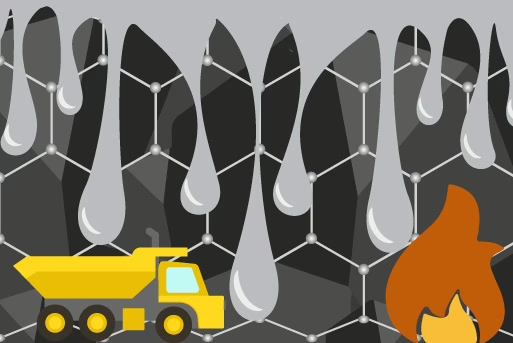
Bryn Bach Coal Ltd attempts to present the anthracite coal it wishes to extract from an expansion of Glan Lash as a unique and scarce commodity that is needed for water filtration, bricks, and graphite, and would therefore be too valuable to burn. Yet, visiting Energybuild Ltd’s…
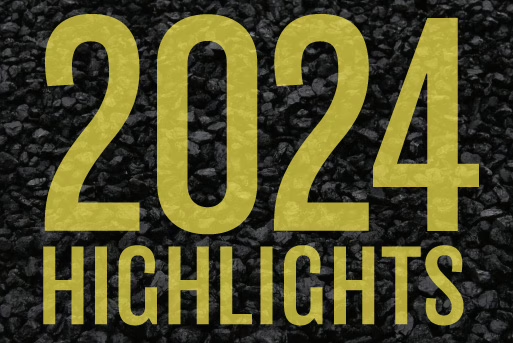
Over the past year, we’ve secured some massive victories. By taking part in our digital actions, supporters sent over 26,000 messages to the UK Government, MPs, Welsh Senedd members, Councillors, and companies to help consign coal to the history books in the UK…
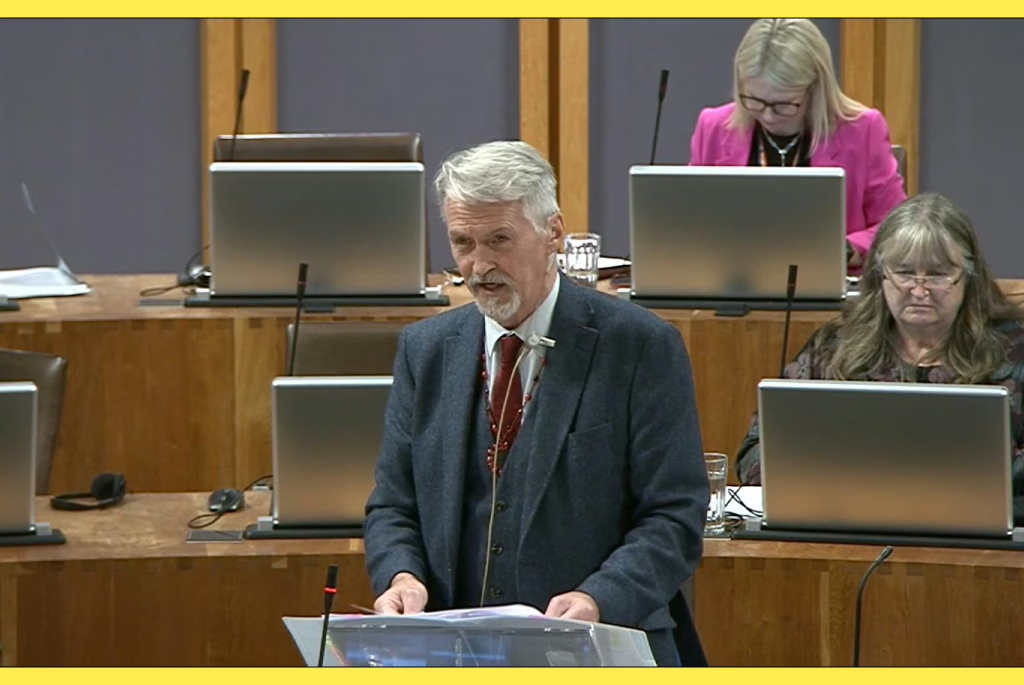
The Disused Mine and Quarry Tips (Wales) Bill (‘the Bill’) was prompted by a series of coal tip landslides that occurred in Wales following storms’ Ciara and Dennis in 2020, including a major landslide of a disused coal tip in Tylorstown…
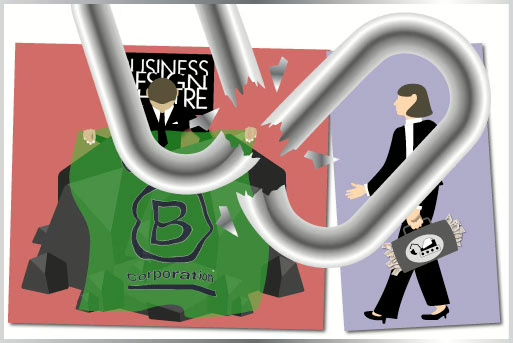
As B Labs doesn’t seem bothered was the public says, we asked supporters to contact other B Corps – who are effectively B Labs customers. Almost 20,000 emails were sent to over 60 B Corp status companies, asking them to take a stand with us…